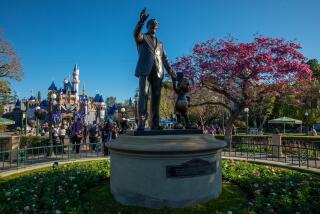Slave-Labor Lawsuit Dealt Setback
- Share via
A state appellate court has dealt a procedural setback to a Koreatown resident’s slave-labor lawsuit against Japanese companies.
The three-judge panel’s unanimous order, issued Wednesday but made public Thursday, involves 79-year-old Jae-Won Jeong’s use of a 1999 state law permitting wartime forced-labor victims to seek redress in California courts.
Last month, Superior Court Judge Peter D. Lichtman permitted the case to proceed, rebuffing the federal government’s claim that the state law is unconstitutional. Lawyers for Onoda Cement Manufacturing Co. and its successor entities and affiliates in the United States sought appeals-court review.
The appeals panel’s two-page order, signed by Presiding Justice Candace Cooper and Associate Justices Laurence D. Rubin and Paul Boland, halted all proceedings before Lichtman and set an April 30 hearing before the appeals panel.
Jeong was studying economics at a Tokyo university in 1943, when he was taken to a slave camp for refusing to be drafted into the Japanese army.
Jeong said he was not obligated to serve in the Japanese military because he was a Korean national. But his refusal earned him hard labor, breaking limestone by hand at a quarry for Onoda Cement Manufacturing Co., in the northeastern tip of the Korean peninsula. Korea was a Japanese colony from 1910 until 1945.
Jeong, a retired teacher who is now a U.S. citizen, expressed disappointment, saying it is the nature of Japan’s government and companies “to deny they’re wrong, then, when they can’t deny anymore, seek delay after delay.”
Attorneys for Japanese companies had no comment on the latest procedural victory for their clients.
In 1999, Jeong sued the company and its successor entities under the state law that says wartime European and Asian forced-labor victims can bring cases in California until 2010.
Unlike European Holocaust cases, the complaints against Japanese companies that used slave labor throughout Asia before and during World War II, have met with U.S. government opposition.
Jeong wants compensation for his labor and injuries, an apology and a trust to benefit former forced laborers.
More to Read
Sign up for Essential California
The most important California stories and recommendations in your inbox every morning.
You may occasionally receive promotional content from the Los Angeles Times.













